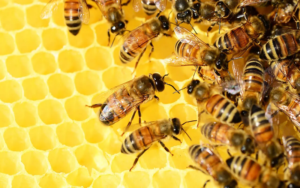A leather sofa adds refinement and comfort to any living space while being fashionable and long-lasting. But spills and stains happen, and keeping your sofa looking its best depends on understanding how to deal with them quickly and efficiently. Knowing the appropriate methods and cleaning supplies is essential for a proper leather sofa cleaning. Here are some professional cleaning advice and techniques for your leather couch.
Identifying the Leather
Aniline Leather
High-quality leather coloured without a protective topcoat is called aniline leather, and it is more stain-prone. This kind of leather requires specialised materials and delicate cleaning techniques.
Tan-coloured Leather
Because of its thin protective layer, semi-aniline leather is more stain-resistant while yet maintaining its natural look. Though it still has to be treated, this type of leather may tolerate harsher cleanings than aniline leather.
Pigmented Leather
Pigmented leather is the most resilient and stain-resistant because of its polymer covering. It is a sensible option for households with kids or dogs because it can withstand more rigorous cleaning techniques.
General Cleaning Advice
The key to keeping stains from forming is routine maintenance. Use a gentle brush attachment while frequently dusting and vacuuming your leather sofa. Once a week, use a moist cloth to wipe the surface to get rid of oil and grime.
Always do a spot test on a discrete section of the sofa before applying any cleaning products. This guarantees that the cleaning will not damage or discolour the leather.
Dealing with Simple Stains
Water stains may be removed by gently wiping the damaged area with a towel slightly dampened with distilled water, allowing the stain to blend in with the surrounding leather. Dry the leather with a gentle towel; do not saturate it; too much water might ruin it.
Apply a small amount of cornflour or baking soda to grease and oil stains, then let the mixture soak for a few hours. These granules absorb grease. Using a moist towel, gently remove any remaining powder and clean the area. Direct use of water should be avoided, as it may spread the grease.
It might be difficult to erase ink stains. Use a cotton swab soaked in rubbing alcohol or a leather-specific ink remover to dab the stain gently. Blotting will prevent the ink from spreading more than rubbing the stain. After the stain has been removed, quickly dry and wipe the area with a moist towel.
How to Handle Stubborn Stains
For difficult-to-remove stains, a mixture of equal parts white vinegar and water might work well. Do not soak the leather; blot the stain lightly with a towel dampened with the solution. After using a fresh, moist towel to wipe the area, let it completely dry.
For stains that are really difficult to remove, you might want to use a commercial leather cleaner. Pay close attention to the manufacturer’s directions. These solutions are safe to use on stubborn stains since they are designed to clean leather without harming it.
Preventive Actions
A leather protection cream applied to the leather can help prevent stains from seeping through. These creams form a barrier that facilitates spill cleanup before stains form. Use the lotion as directed by the manufacturer, usually once every six months.
Above all, though, the best defence against stains is to clean up spills right away. Using a dry cloth, dab any liquid spills to absorb as much moisture as possible before it is embedded. Reluctantly pressing the spill in can cause it to seep more into the leather.
Conclusion
To guarantee that a couch’s leather retains its quality, stain removal requires caution and the correct methods. Effective leather couch cleaning requires routine upkeep, prompt spill response, and the use of the right cleaning supplies. If you use these professional tips and methods, your leather couch will look great and last longer, so it will always be a chic and cosy focal point in your house.



